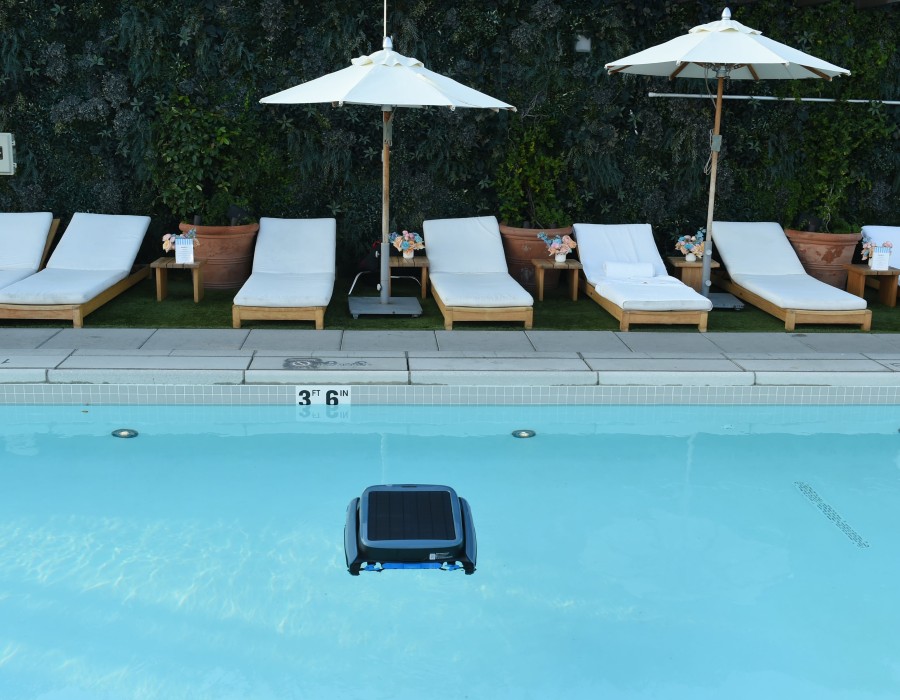Preserving a clean and inviting pool requires the right tools, and a pool vacuum is one of the most essential equipment in your cleaning arsenal. With various pool vacuums on the market, selecting the best one for your pool's unique design can feel overwhelming. Whether you have a small backyard pool, a large commercial pool cleaner robot, or a uniquely shaped custom design, this guide will walk you through the top tips for choosing the right pool vacuum.
1. Understand Your Pool's Design
Before you even start looking at pool vacuums, assessing your pool's design and specific needs is essential. Consider the following factors:
- Pool size: Larger pools require vacuums with greater cleaning capacity, more potent suction, and longer cords or hoses.
- Pool shape: Pools with irregular shapes, such as kidney-shaped or L-shaped pools, may require vacuums that can effectively navigate tight corners and curves.
- Depth: Pools with varying depths or steep inclines need vacuums to handle elevation changes.
- Surface material: Pools made from vinyl, fiberglass, or concrete require different vacuum brushes to avoid damaging the surface.
Knowing these details about your pool will help you narrow your options and choose a vacuum suited to your specific setup.
2. Choose the Right Type of Pool Vacuum
Pool vacuums come in three primary types, each with its advantages. Understanding the differences can help you pick the best one for your pool.
Manual Pool Vacuums
Manual vacuums are ideal for smaller pools or spot cleaning. These vacuums connect to your pool's filtration system and are operated by hand, similar to using a vacuum cleaner for your floor.
- Pros: Affordable, easy to use, and suitable for pools with minimal debris.
- Cons: Labor-intensive and not ideal for large or heavily used pools.
Automatic Suction-Side Vacuums
These vacuums connect to your pool's filtration system and rely on suction power to move around and clean the pool's surface.
- Pros: Cost-effective and efficient for regular maintenance.
- Cons: Limited cleaning power and may need help with larger debris or complex pool shapes.
Robotic Pool Vacuums
Robotic vacuums are self-contained units that operate independently of your pool's filtration system. They use advanced technology to clean the pool's floor, walls, and waterline.
- Pros: High efficiency, ease of use, and excellent cleaning performance. They are particularly suitable for large or uniquely designed pools.
- Cons: Higher upfront cost compared to other options.
Consider your budget, pool size, and cleaning needs when deciding.
3. Evaluate the Pool's Debris Type
The type of debris your pool collects should also influence your choice of vacuum. For example:
- Acceptable debris (e.g., sand or dirt): Look for a vacuum with fine mesh filters and potent suction.
- Leaves and larger debris: Choose a vacuum with a more giant debris collection bag or basket.
- Algae and stubborn stains: Opt for a vacuum with scrubbing brushes or rollers designed for deep cleaning.
Knowing the primary debris type will ensure that your vacuum can handle the job efficiently.
4. Consider Energy Efficiency
Energy efficiency is an important consideration, especially if you plan to use your pool vacuum robot frequently. Robotic vacuums are generally more energy-efficient than suction-side models because they operate independently of your pool's pump and filtration system. Look for vacuums with energy-saving features or eco-friendly certifications to minimize electricity costs.
5. Check for Smart Features
Modern pool vacuums often come with intelligent features that make cleaning your pool more convenient. Some popular features to consider include:
- Programmable cleaning schedules: Allows you to set specific cleaning times.
- Remote control or app integration: This lets you control the vacuum from your smartphone.
- Navigation technology: Ensures the vacuum covers every part of your pool without getting stuck.
While these features may be more expensive, they can save you time and effort in the long run.
6. Look for Durability and Warranty
A pool vacuum is an investment, so you'll want to ensure it's built to last. Check the vacuum's materials and construction quality, and look for models with a solid warranty. A good warranty indicates the manufacturer's confidence in their product and provides peace of mind in case of defects or malfunctions.
7. Read Reviews and Seek Recommendations
Before making a final decision, take the time to read customer reviews and expert recommendations. Real-world experiences can provide valuable insights into the vacuum's performance, reliability, and ease of use. Additionally, consulting with a pool professional or retailer can help you identify the best options for your specific pool design.
8. Budget Wisely
Pool vacuums are available at various prices, so it's essential to find one that fits your budget while meeting your needs. While it can be tempting to go for the cheapest option, investing in a higher-quality vacuum may save you money in the long term by reducing repair and replacement costs.
Summary
Choosing the right pool vacuum for your pool's design doesn't have to be daunting. By understanding your pool's unique characteristics, evaluating the different types of vacuums, and considering factors like debris type, energy efficiency, and durability, you can find the perfect vacuum to keep your pool sparkling clean. Remember, a well-maintained pool looks inviting and ensures a safe and enjoyable swimming experience for everyone.





Comments